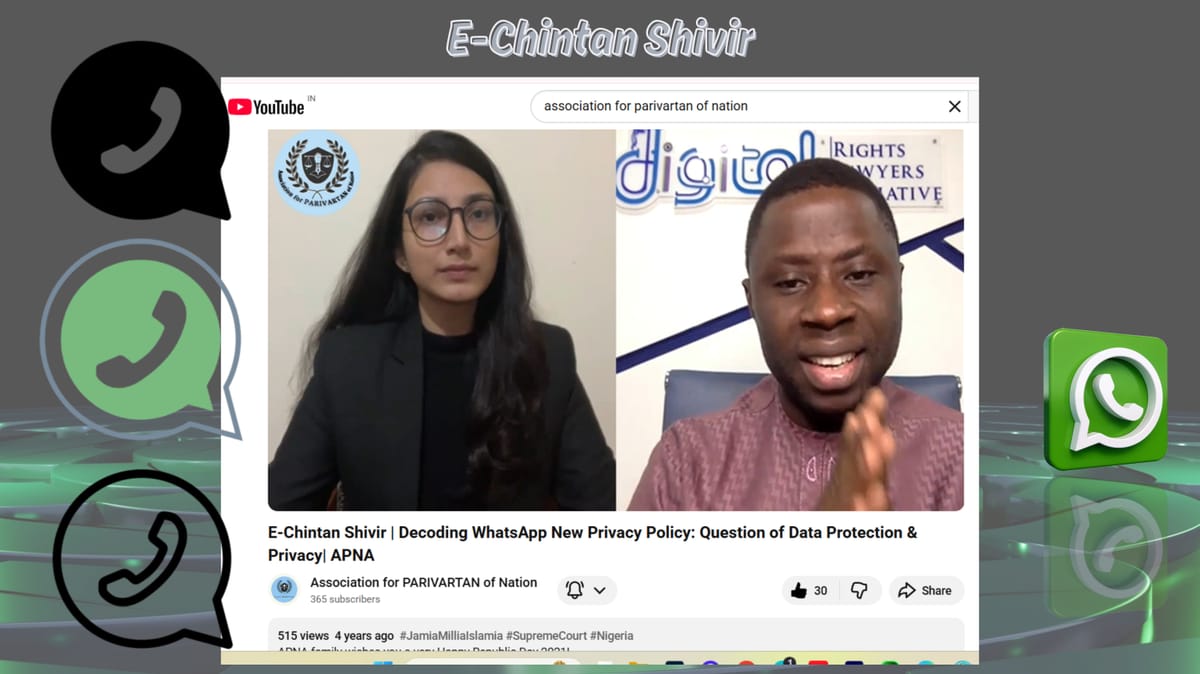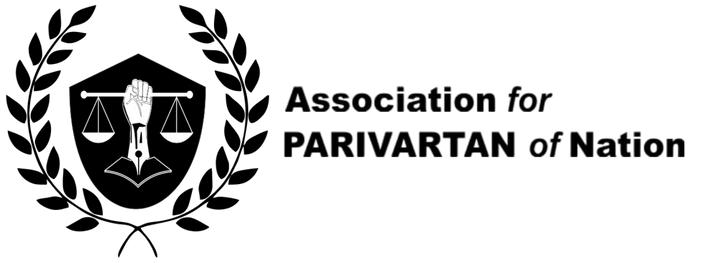E-Chintan Shivir
On 26 Jan 2021, APNA hosted an E-Chintan Shivir on WhatsApp's new privacy policy with 646 global participants. Mr. Solomon Okedara called privacy a right, not a privilege, and warned against coercive consent. The session urged stronger laws and digital literacy to safeguard democracy.

Decoding WhatsApp’s New Privacy Policy: The Question of Data Protection and Privacy
On the occasion of Republic Day, 26th January 2021, the Association for Parivartan of Nation (APNA) organised an E-Chintan Shivir to demystify the much-debated WhatsApp privacy policy. With 646 participants joining virtually from across India and abroad, the event highlighted the growing public anxiety around data protection, surveillance, and the role of corporate power in shaping digital life.
The session was moderated by Ms Vareesha Irfan, a law student at Jamia Millia Islamia and member of the Student Editorial Board for the South Asian Journal of Law, Policy and Social Research. The keynote speaker was Mr Solomon Okedara, Barrister and Solicitor of the Supreme Court of Nigeria, and co-founder of the Digital Rights Lawyers Initiative, who joined from New York.
The discussion began with a reminder that privacy is not a privilege but a right recognised globally. Referring to Article 12 of the Universal Declaration of Human Rights and Article 17 of the International Covenant on Civil and Political Rights, Mr Okedara noted:
“Privacy is not about hiding secrets- it is about autonomy, dignity, and freedom from arbitrary interference. It is as relevant to a farmer in Bihar as it is to a banker in London.”
A major point of discussion was WhatsApp’s policy to share consumer data with Facebook, with user “consent” as the legitimising factor. “Consent is only meaningful when it is informed and voluntary,” argued Mr Okedara.
“If users are pressured into agreeing because the alternative is losing access, then it is not consent but coercion.”
This concern resonated with participants. Merajuddin, a small business shopkeeper owner from Ranchi, shared: “We depend on WhatsApp to run our shops and keep in touch with customers. If we say ‘no’ to these terms, we lose our livelihood. Where is the choice in that?”

Contrary to the common assumption that privacy is primarily a Western concern, the session highlighted how countries in the Global South are increasingly legislating protections. Nigeria’s Data Protection Regulation (2019) and Kenya’s Data Protection Act (2019) were cited as examples. The dialogue also turned towards electoral integrity, recalling how targeted data analytics influenced the 2016 U.S. elections. The speaker cautioned that similar vulnerabilities exist in emerging democracies, where misinformation campaigns can distort public opinion on a mass scale.
The event left participants more aware of the intersection between technology, law, and daily life. About a hundred participants engaged actively in the Q&A, reflecting the depth of concern. Many called for stronger data protection legislation in India and public awareness campaigns to build digital literacy. In his closing remarks, Mr Okedara emphasised, “If the state will not act fast enough, then civil society must keep raising its voice. Protecting privacy is not optional – it is essential for democracy.”

